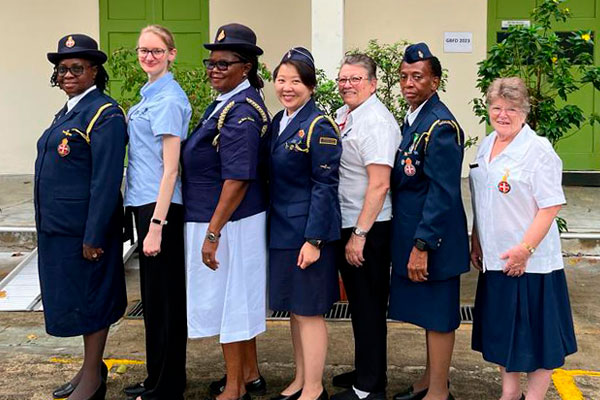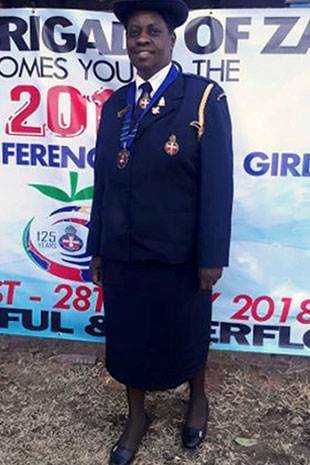Leadership Structure
Thousands of women.
Dozens of countries.
Five international fellowships.
One Girls’ Brigade.

We’re a 130-year-old mission that spans countries and cultures. Collaboration, local leadership and cultural diversity is in our DNA.
To connect and support so many girls and volunteers, we need an organised leadership structure.

If The Girls’ Brigade International were a tree, our volunteers would be the roots in the ground. Without them, the international work of The Girls’ Brigade could not take place and the organisation could not grow. We’d also be unable to build lasting friendships and provide safe communities for the girls we serve.
Just like when the movement started in 1893, most of the women who work with The Girls’ Brigade are volunteers from local churches. Like our founder, Margaret Lyttle, they’re women with a vision to empower girls, help them to explore their unique gifts and identities, and live life to the full as they become everything that God created them to be.
In different parts of the world, we also employ staff members to lead our work in individual countries.
In every country where The Girls’ Brigade works, there’s a local council made up of women from all walks of life. Their job is to take the lead, to use their local knowledge, and to focus on God as they help The Girls’ Brigade to move ‘onwards and upwards’ in their country.
Each of the local councils of The Girls’ Brigade belongs to an international, or continental, fellowship. The first fellowship was formed in the Pacific in 1964 to organise the work of The Girls’ Life Brigade across a number of island nations. Since 1998, there have been five fellowships representing Africa, Asia, The Caribbean and Americas, Europe, and the Pacific region.
Just like in the local councils, representatives from each country in the fellowships work together to use their knowledge, experience, and the things on their hearts to make the work of The Girls’ Brigade in their area as relational, relevant and responsive as it can be.


Each fellowship elects a chairwoman, also known as an International Vice President or IVP. Together, these five women make up the International President’s Committee or IPC. You can read more about the current President’s Committee here.
Being an IVP could easily be a full-time job, but each of the IVPs works for The Girls’ Brigade International alongside another role or a variety of voluntary positions.
The IPC meets once a year to discuss the global needs of The Girls’ Brigade. This conference takes them all around the world so that they can experience the diverse range of cultures that The Girls’ Brigade represents. Past IPC meetings have taken place in Singapore, The Cook Islands, New Zealand, and the USA among many others.
Because each member of the IPC leads a fellowship, they are acutely aware of the opportunities and challenges which The Girls’ Brigade has in their region.
The IPC is a wonderful time of hearing about the development of The Girls’ Brigade internationally and exploring our vision for the future. It also allows us to focus on what the organisation needs in order to fulfil its potential and serve every one of its members.
Every four years, teams representing The Girls’ Brigade gather for the International Conference of The Girls’ Brigade (ICGB).
They discuss, network, worship and learn together. They listen to stories about The Girls’ Brigade’s work around the world and the needs of their international sisters. They celebrate what’s been achieved and they look forward expectantly to what’s coming next.
Every single country in The Girls’ Brigade has a voice at the council. They contribute to the agenda and the decision-making process. At this time, they also vote for the next International President of The Girls’ Brigade.


Every four years, The Girls’ Brigade family chooses one of the International Vice Presidents to head the President’s Committee and become the International President.
Priscilla Penny from Zimbabwe has been the International President since 2018.
A global organisation needs a lot of administration and, for The Girls’ Brigade, this happens at our offices in England. The staff here support the work of the IPC while also ensuring that local leaders have the resources they need to run their programmes and reach their girls.
If you have any questions, you can contact our head office here.
